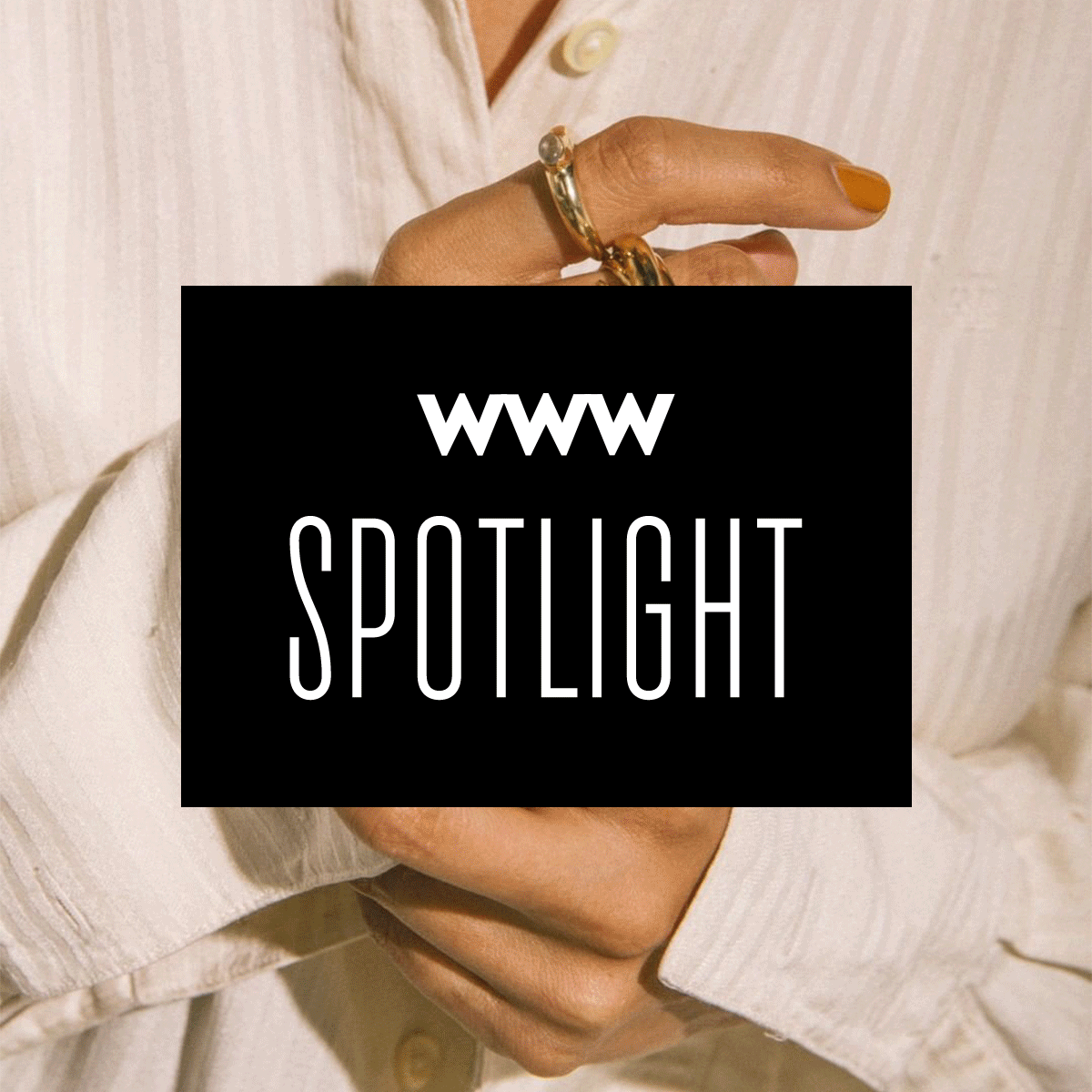
Welcome to Who What Wear Spotlight, where we’ll be using our editorial platform, social following, and ad inventory to turn the spotlight on small businesses that need our support now more than ever. Each week, we’ll be highlighting a new fashion or beauty company. If you own a small brand and would like to be considered for the program, please apply here.
There is an enormous world of beauty products out there. It’s endless, so I find I’m drawn to brands that are so small and focused they don’t even have products to sell yet. And I swear it’s not because of the marketing or even the element of mystery. For me, it’s a meaningful mission and the confidence to see it through above all else. That’s what’s so special about Eadem, the brand-new beauty company from Marie Kouadio Amouzame and Alice Lin Glover, two young women who left their jobs at Google, where they met, to create products for melanin-rich skin.
The brand launched with a blog that delves into the global beauty landscape, sharing how women of color all over the world take care of their skin and discussing the realities of the industry from the perspective of marginalized identities. It taught them what they needed to focus on first, and now, they’re proud to launch their first product, the Milk Marvel Dark Spot Serum, which treats hyperpigmentation without lightening skin tone in the way that most conventional spot treatments do on darker skin.
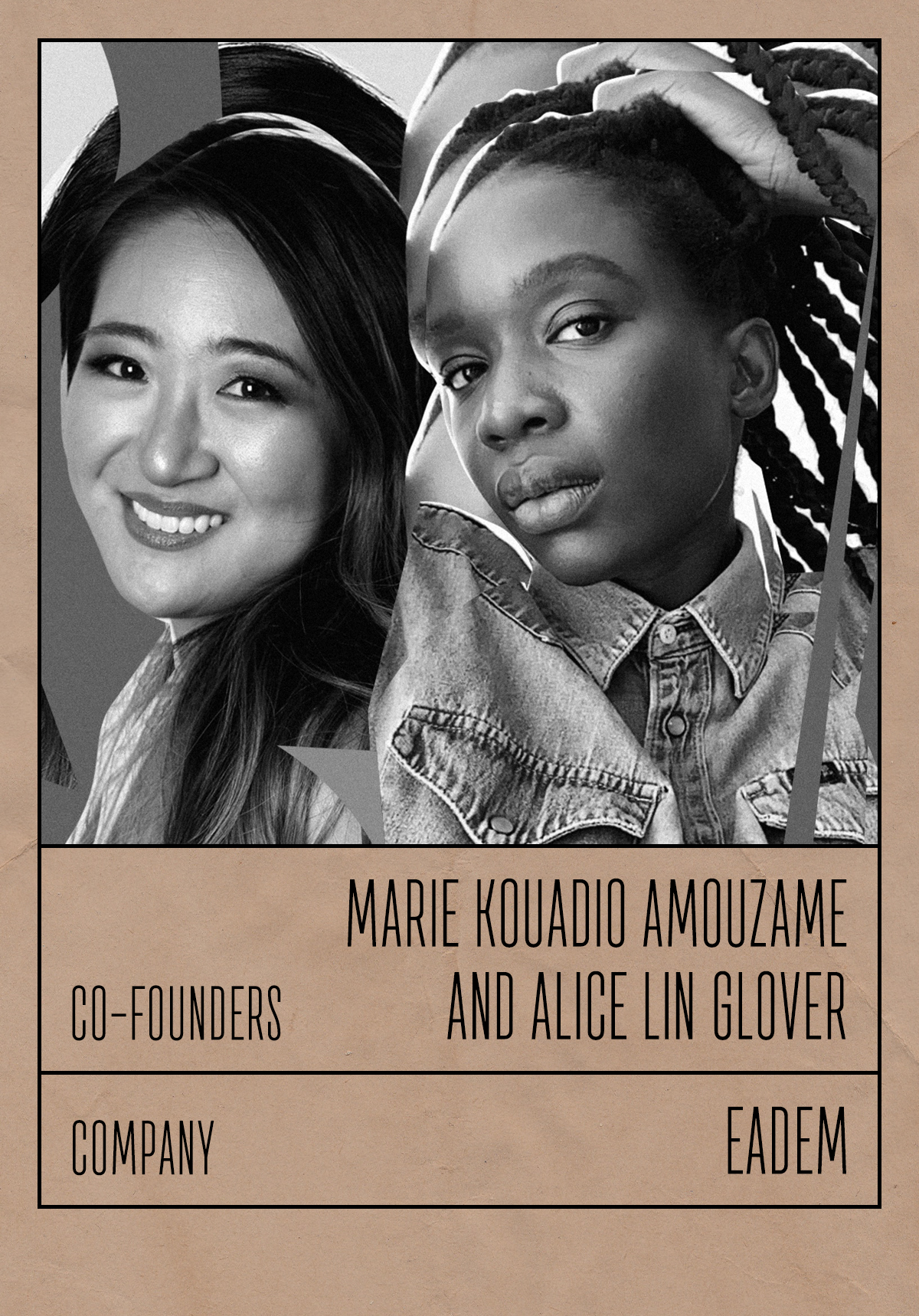
“Eadem is the clean beauty brand Marie and I were always looking for—designed for our melanin and bare-skin confidence,” Glover says. “First up? We’re tackling hyperpigmentation, a problem all women of color share, with our launch of the Milk Marvel Dark Spot Serum.”
Milk Marvel is the product of thorough, self-funded research. Amouzame and Glover have been involved in the production of the formula every step of the way, from consulting a dermatologist to ensuring lab trials included people of color. They’re so confident in their mission, so driven to create formulas that are genuinely different from what’s available, they gained attention from the top credibility-building platforms in beauty, Sephora and Glossier. With the Glossier Grant Initiative for Black-Owned Beauty Business and Sephora Accelerate mentorship, Eadem surely will continue to build out a lineup of skincare products unlike anything else in the business. Keep reading to learn how Amouzame and Glover got started and what they envision is in store for the future of beauty and Eadem.
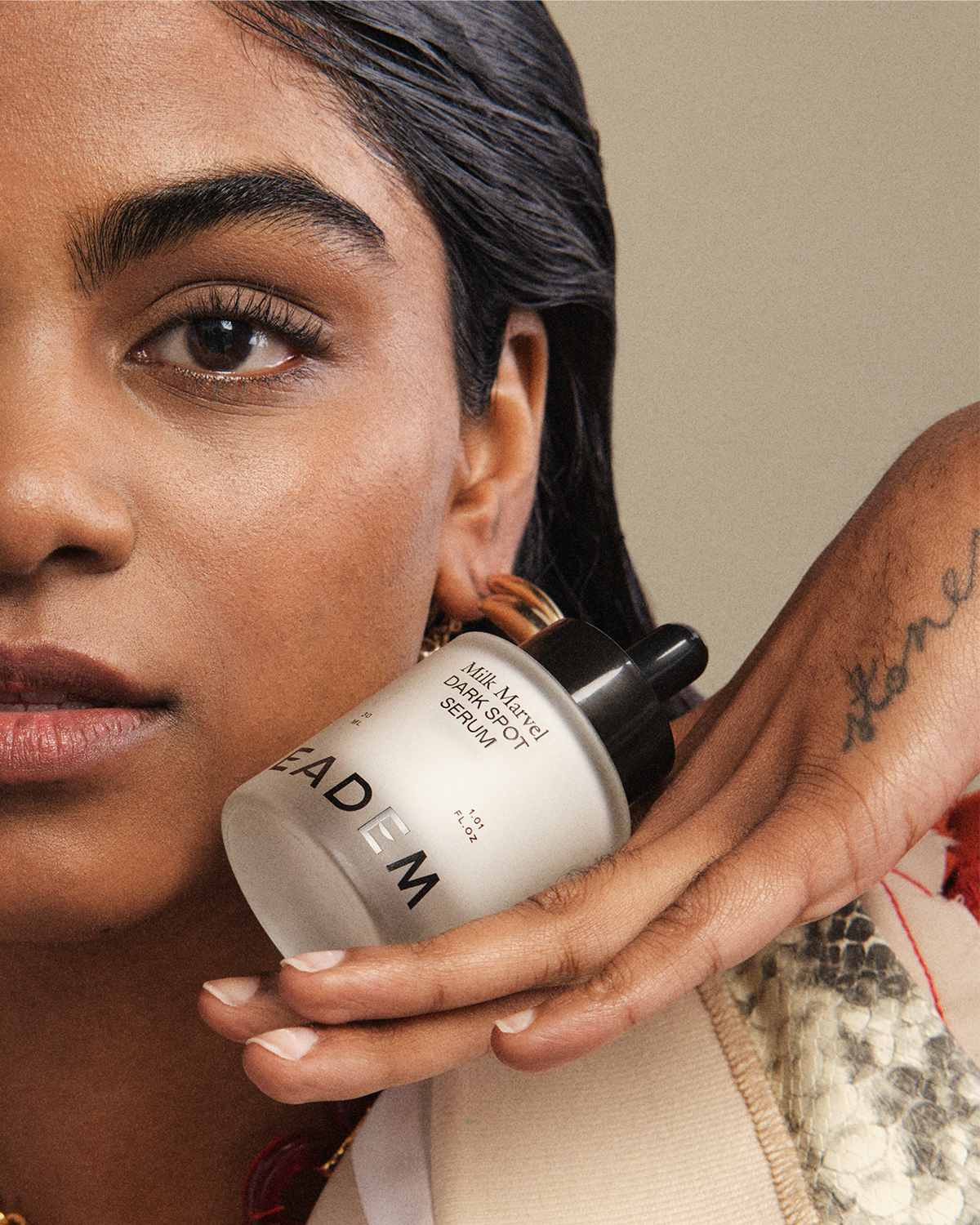
Can you tell us a bit about yourselves and your business?
Marie Kouadio Amouzame: I am French and was born in Côte d’Ivoire in West Africa. In many ways, my upbringing was very typical of a child of immigrants: I was expected to assimilate, work hard, and climb the social ladder as fast as possible. It was this shared experience that first connected Alice and me when we were working at Google. Alice and I, though we look very different, realized that we have a lot more similarities than differences when it comes to being women of color, which is the real impetus for starting a brand that celebrates the beauty in our multitudes.
Alice Lin Glover: Working at Google was a forever dream of mine, and when I landed a marketing job at the company, it quickly became a part of my identity. After eight years of working my way up the corporate ladder, I needed to find new challenges and get out of my comfort zone. Marie and I have been close friends for a long time, and we’ve always swapped beauty knowledge. We’ve been lucky enough to travel together. Marie has shown me the ropes when it comes to French-pharmacy beauty, and together, we’ve explored the latest skincare trends in Asia, but we soon came to realize that there’s a need for beauty that is geared toward our melanin-rich skin without harsh chemicals or pushing European beauty ideals.
And if you had to sum up your business in five words or fewer?
MKA: Smart melanin beauty for WOC.
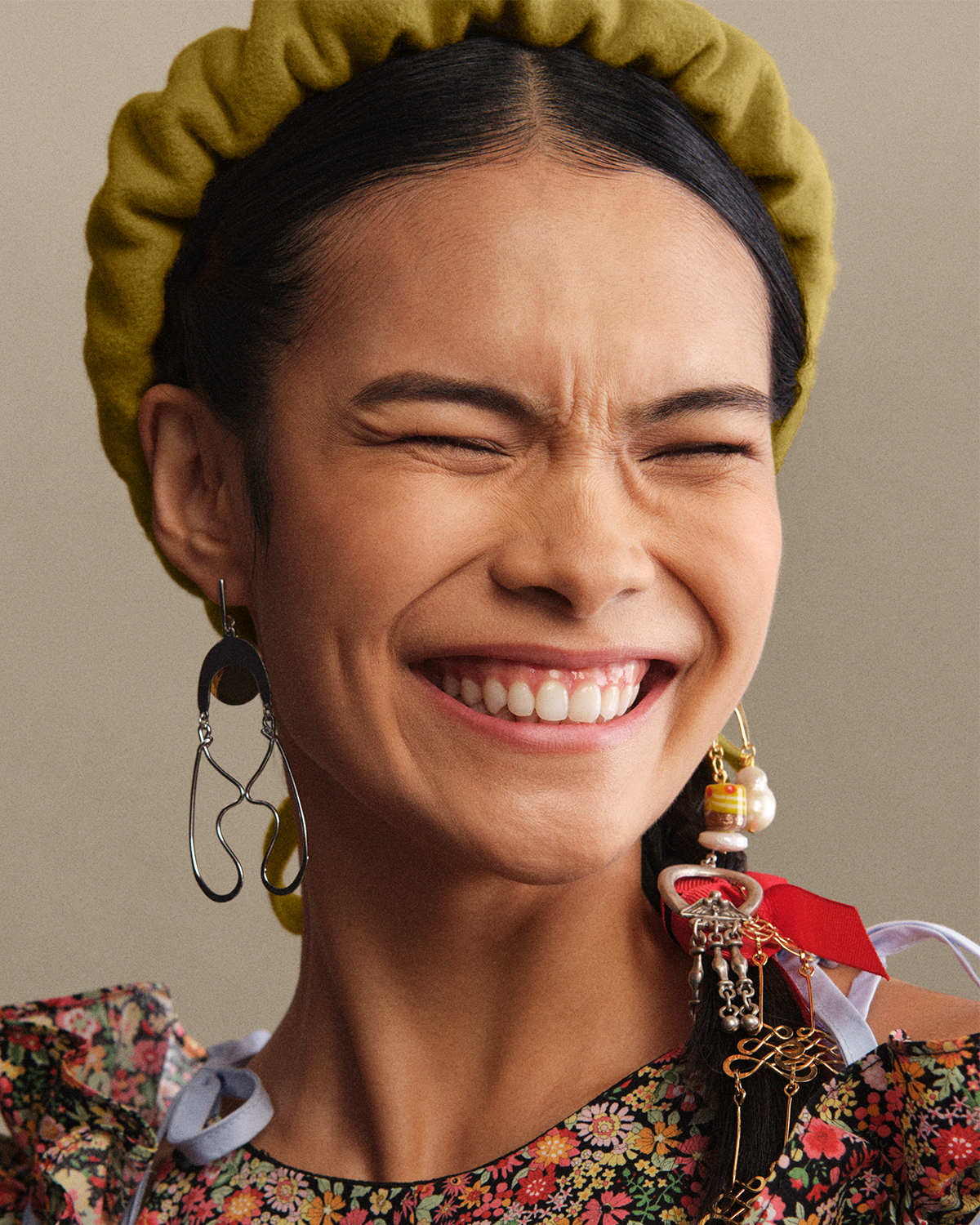
What inspired you to start Eadem? How did you get interested in ethical consumption and production?
MKA: In 2014, a well-known brand had just released a new foundation, and at the time, a very famous Black actress was their spokesperson. The following weekend, I went to a department store in Paris to purchase the foundation for myself, noticing ads featuring the actress in the foundation campaign on full display. I was standing at the beauty counter basically saying, “Take all my money,” but when I ask the salesperson for my foundation shade, he told me, “Oh sorry no! We don’t have that shade here.” This was one of the most humiliating moments I can remember. I turned around and just exited the store. From there, I realized that more could be done for women of color in beauty and always had that experience in the back of my head.
ALG: I’ve always had severe cystic acne and eczema, so I grew up going to a slew of dermatologists, estheticians, and even traditional Chinese medicine healers. When I realized several products I was using contained hydroquinone, an ingredient that’s banned in the EU and several countries in Asia and Africa, I was really shocked. The more I dug into the research behind what’s in our beauty products, the more convinced I became that there was not just an opportunity but also a need to provide safe, targeted skincare products for women of color.
Most hyperpigmentation serums focus on dark spots caused by anti-aging and work by lightening your entire complexion. Our Milk Marvel Dark Spot Serum is the first of its kind to only target the dark spot itself, not your skin tone. Did you know that when clinical trials are done, they’re normally done on a panel of lighter skin tones? What makes Eadem even more unique is that we built out a custom panel of women of color to understand the efficacy of our product for skin of color with hyperpigmentation. Eadem is not a marketing play on the clean-beauty trend or diversity for the sake of diversity—it’s about building solutions for the real needs and unique perspectives of women of color.
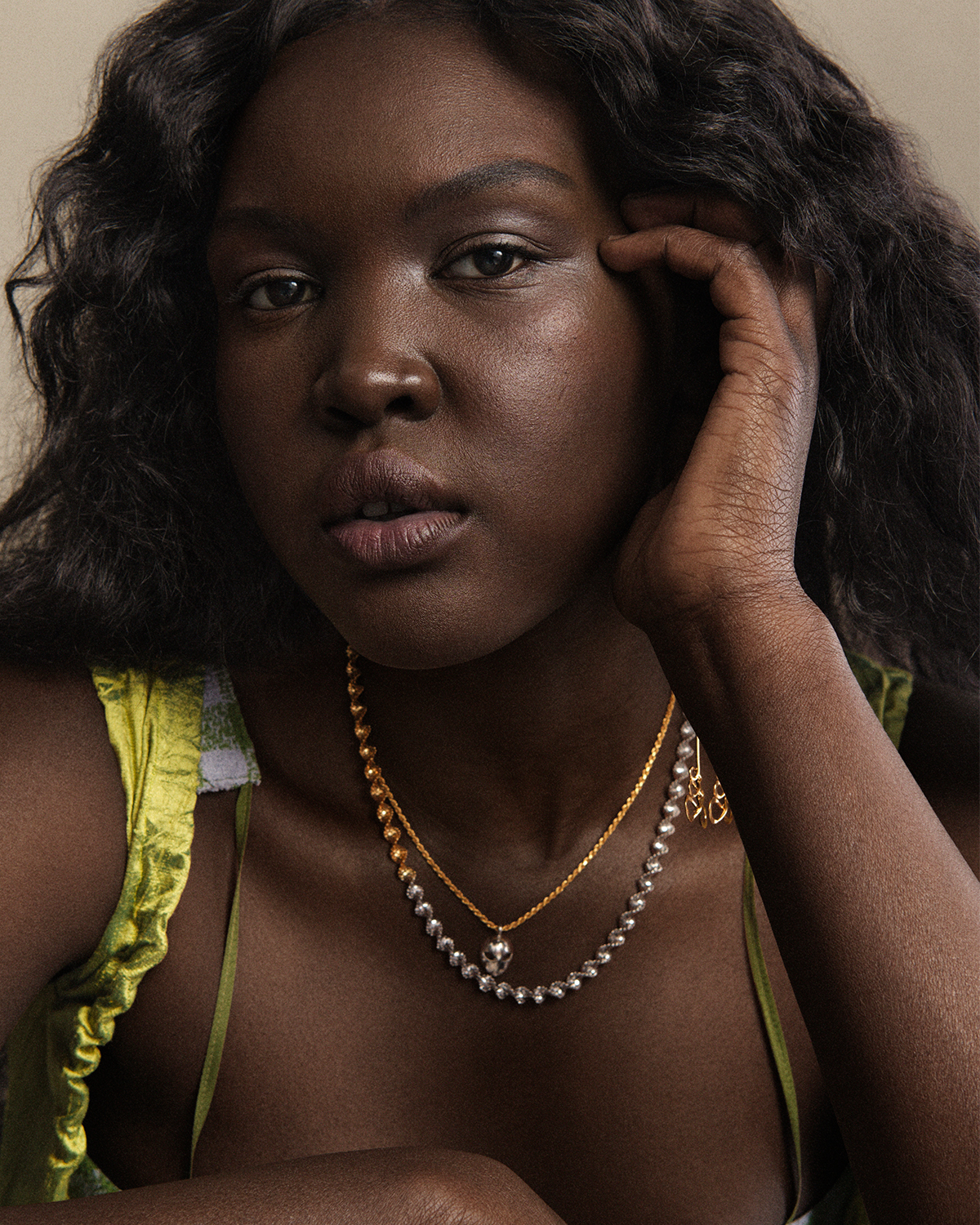
Congratulations on getting into the Sephora Accelerate program! What are you hoping to get out of the experience?
MKA: Thank you so much! Launching a new brand is incredibly rewarding but can also be isolating. We are so honored to be selected as part of such a prestigious program, and having that mentorship is a dream come true and all we could have hoped for as a young business.
How do you combine scientific and heritage-based approaches in the making of your products? Do you feel as though you lean on one more than the other?
MKA: Our formula combines ingredients with proven efficacy—superstar ingredients that are both synthetic and plant-derived: amber algae, niacinamide, licorice root extract, and encapsulated vitamin C. We worked hard to make a high-performing formula that achieves our goals. Instead of buying a generic product from a manufacturer and rebranding it, we worked with a woman of color dermatologist and chemist to create our own melanin-loving formula from scratch.
The beauty industry has grown so much over the last few years. Fast-forward another five years—how do you envision the industry looking? In what ways do you want it to continue growing, and what are some aspects you hope it will leave behind?
ALG: We hope that the beauty industry continues to push for diversity, starting with serious internal changes. Without proper representation in leadership roles, it is impossible to accurately cater to minority groups, which, in actuality, make up a majority of the world.
Growing up as a second-generation Taiwanese American, I straddled my family’s perception of what was beautiful and what was considered beautiful in the U.S. I want to see a new standard of beauty that’s more inclusive.
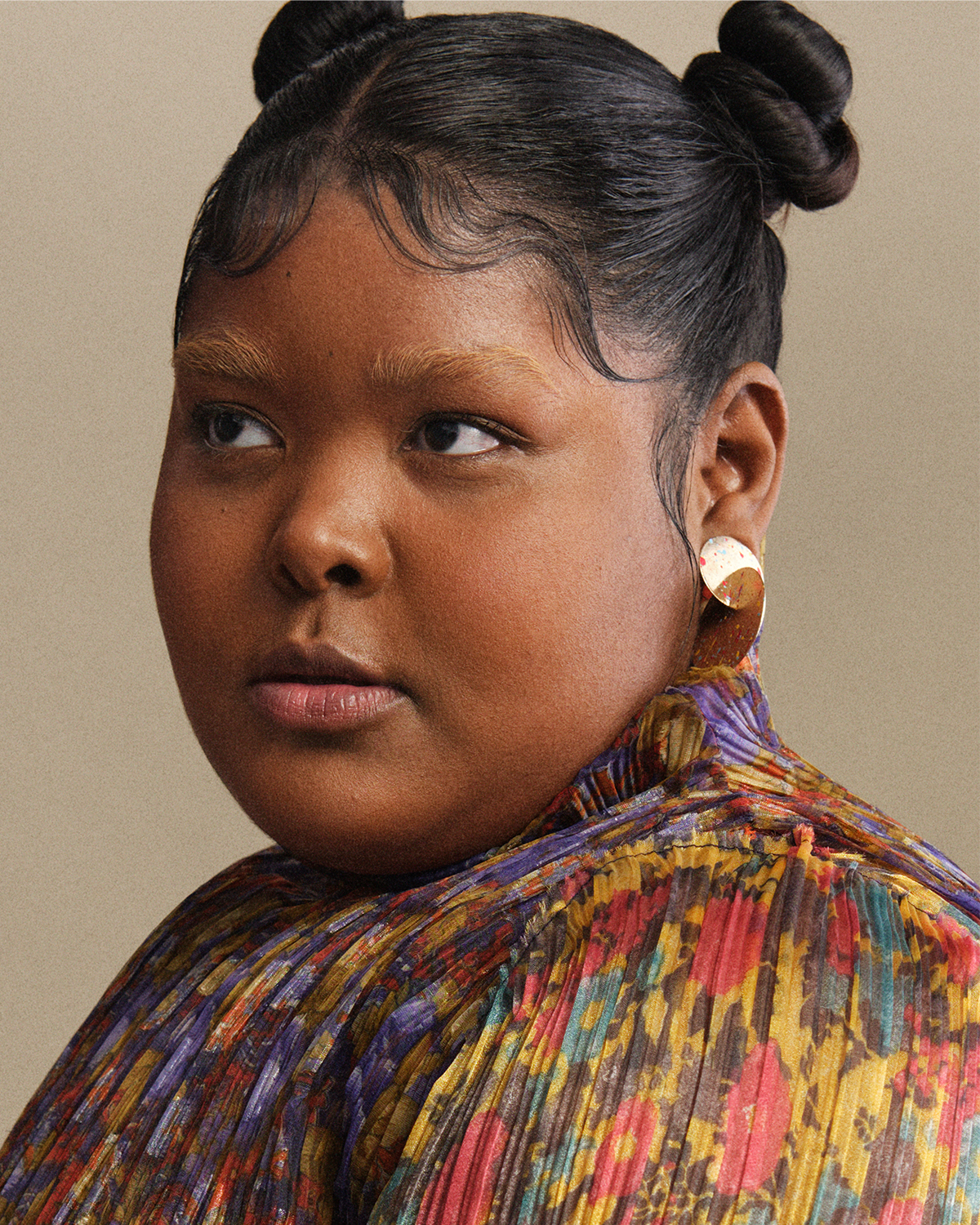
How did the pandemic and stay-at-home orders affect your business? How have your priorities shifted over the last year?
ALG: I’m based in California, and Marie lives in New York, so being on opposite sides of the country, not able to travel, has been challenging. On top of that, we both gave birth during the pandemic, which has been a whole difficult experience in itself.
Being a small business, we were able to adjust quickly and learned to be a bit more nimble. Marie and I are perfectionists (a blessing and a curse, really), and this experience has forced us to prioritize the things that mean most to us, both professionally and personally.
What has been your proudest moment as business owners?
MKA: When you take a big leap of faith to start your own business, and COVID happens, it makes you really wonder if you’re going to make it. It’s not easy leaving behind a comfortable job and a steady revenue stream, so when we won the Glossier grant and got selected for Sephora Accelerate—all within three months and without having launched a single product yet—it felt like we were right all along.
ALG: Marie and I set out to build a product for people like us and bring together diverse cultures. Our editorial platform gives women of color a voice to share stories from their cultures that are universally relatable. The word eadem is Latin for “all and the same,” and the brand is truly rooted in those connections we have with one another. Comments like, “I wish I had this when I was growing up,” or “Thank you for creating this space,” really motivate us to continue our work.

We like to give a little Spotlight love to other brands. What are two to three of your favorite brands you like to support and why?
MKA: The Most. As someone with textured hair, I love the platform Dawn Myers has built. (Dawn is also just an amazing woman.) Kulfi Beauty because of the founder Priyanka Ganjoo, who truly embodies her brand, and the stories of self-expression it shares. Klur makes high-quality, elevated products from an esthetician. The founder, Lesley Thornton, is a trailblazer, and I love the aesthetic of the brand.
ALG: Omsom for the discussions it fosters and the intentionality of all the work it puts out. Redoux for its approach to storytelling through scent (and the founders are great, too). This is not so much a brand but a general plug for your local farmer! For me, it’s Shao Shan Farm. I have deep respect for those who work so hard to provide food for us. Scott Chang-Fleeman (the farmer behind Shao Shan) provides not only beautiful produce but also a glimpse into the beauty and difficulties of growing food in an ever-changing climate.
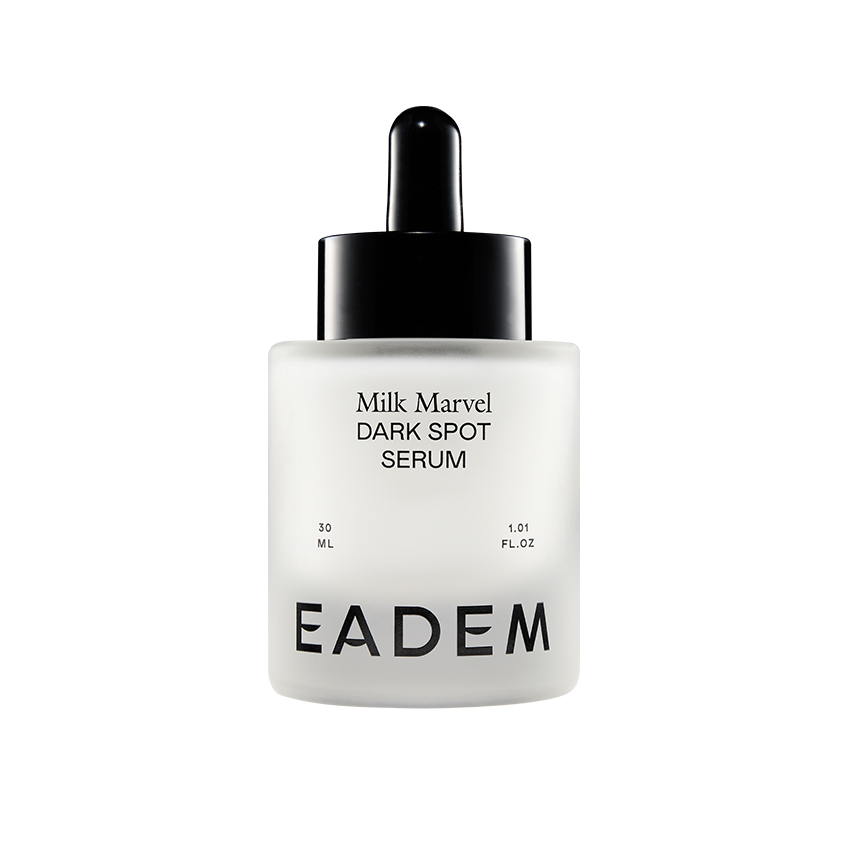
Next up, introducing the slow-fashion brand you’re about to see everywhere.
